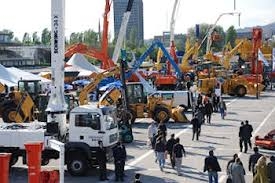Tarsus Group Grows Medical Portfolio in U.S., Adds Construction Business in Turkey

On the heels of unveiling the launch of a new show in Mexico geared toward the education sector last week, Tarsus Group bought two more properties – a medical business in the U.S. and a construction business in Turkey – to add to its fast-growing portfolio.
"The two acquisitions are further steps in the execution of our ‘Quickening the Pace’ strategy. Both are exciting events in markets where we have established a strong presence and which we believe are likely to show further growth,” said Douglas Emslie, Tarsus Group’s managing director.
He added, “Our focus will be on the effective integration of both businesses as cornerstones of our future organic growth. Cardio will bring greater access to the important US market for our wider medical division and Komatek delivers critical mass to our construction events in Turkey and Indonesia.”
The main asset of the medical business - HealthScienceMedia – is the Cardiometabolic Health Congress, which is the largest U.S, event focused on the cardiometabolic field.
CMHC is an annual congress that began in 2006 and is held over three days each October in Boston, attracting approximately 1,500 practicing clinicians.
Healthcare providers and physicians increasingly understand that integrated management of all aspects of cardiometabolic risk, including obesity and Type 2 diabetes, is an important way to deal with this rapidly growing problem area and this field of medicine is attracting significant pharmaceutical company investment.
Cardio is complementary to Tarsus’ existing medical business and provides an established audience for the division’s recently launched new mainstream product, the Metabolic Medicine Institute.
HealthScienceMedia is owned by Alex Teperman, who will remain with the business on a consultancy basis.
Tarsus is acquiring the assets of HSM for $14 million of which $10m is payable in cash on completion with the balance payable in two equal cash payments after the 2014 and 2015 Cardio events, respectively.
In Turkey, where Tarsus already owns a healthy portfolio of shows, the company bought 60 percent of a construction business - SADA Uzmanlik Fuarlari.
SADA has one event in its portfolio – the biennial Komatek show - Turkey’s largest trade exhibition for construction equipment and related products.
The last edition was held May 2013 at the Ataturk Centre in Ankara, with combined indoor and outdoor net space of 572,640 square feet (53,200 sq. m.).
More than 400 exhibitor companies were present and visitor numbers, at approximately 35,000, were 9 percent higher than the 2011 event.
Komatek is the largest construction equipment exhibition in Turkey and one of the largest events in Europe. With US$1.0 trillion worth of major construction and investment projects expected to be completed in Turkey between now and 2023, the Group expects strong growth in Turkey’s construction market during that timeframe.
SADA’s management team has delivered strong performance to date and will continue to run the business post-acquisition, according to Tarsus officials. The exhibition also enjoys support from a key industry association.
The purchase of Komatek further strengthens Tarsus’ position in the Turkish market and adds scale to its Ankara operations.
The city’s importance as an exhibition center is expected to increase when the new Akyurt venue has been built, which is anticipated in 2015.
Additionally, Tarsus officials said they believe there are synergies with Tarsus’s CYF business, which owns Yapi Decoor (a building interiors event) and the Group’s infrastructure event in Indonesia.


Add new comment